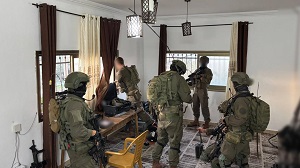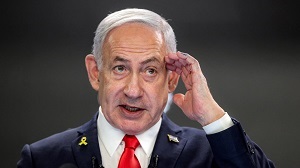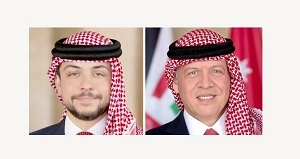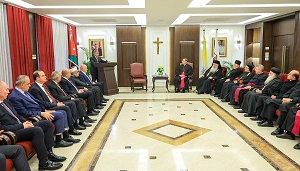IAF, education experts call for civil participation in curricula development process

By Jassar Al Tahat, The Jordan Times
AMMAN — Stakeholders concluded on Saturday the second national conference on “Curriculum changes and the effects on the educational process”, organised by the Islamic Action Front's (IAF) central education committee and held under the patronage of former PM Tahir Al Masri.
The conference was also attended by Mohammad Akel, deputy secretary general of IAF, the political arm of the Muslim Brotherhood, as well as former head of the Jordan Teachers Association (JTA) and Head of IAF's Central Education Committee Husam Mashe.
“You [the participants] hold a great responsibility to reach a better reality for the upcoming generations… such dialogue results in curriculums that meet the needs of our society in order to serve its goals and objectives,” Masri said in his opening remarks.
“Constant development of educational curricula should be our top priority, but the wide social dialogue held during the past two years on the subject of curricula changes confirmed that Jordanians see education as the last resort for a better future for the coming generation,” Akel said.
“Although we saw different views on how curricula should be altered, we hope we would not disagree on the characteristics of the future generation,” Akel added.
For his part Mashe stressed the need to reevaluate the recent changes made to curricula which he considered as “an assault to the educational process and does not serve the students, teachers or educational outcomes”.
Mashe also highlighted the need for the Ministry of Education to adopt plans that activate the participation of civil society. “We cannot leave our curricula to the views and decisions of one opinion, who edits the curricula and why do we edit it?” asked Mashe.
The conference resulted in a number of recommendations that participants agreed upon, among which is the need to fill the gap between curricula designers and students and teachers, the need to extend participation of civil institutions and syndicates in the process of curricula development and involving municipalities in the maintenance of school facilities and their utilisation.
Former MP Rula Hroub stated that the conference witnessed an “impressive turnout” from experts and education activists, but a “disappointing presence from official channels such as the Ministry of Education and the JTA”.
Abeer Akhras, education expert and former member of JTA's board, highlighted what she considered “major problems” with the process of changing and editing curricula.
“There is a separating wall between the Ministry of Education and the Jordanian social spectrum and stakeholders,” Akhras said.
Akhras criticised the “seasonal development of school curricula without clear strategies or proper coordination between stakeholders”.
“Training and enhancing the capabilities of teachers is another major isuue," she said, elaborating that although new teachers are educated in their specialty subjects at universities, they do not undergo training related to the teaching profession and thus are faced with a different reality in the classroom.
"The outcomes of university education do not fall in line with the inputs of the teaching process,” added Akhras.
Khawla Abu Haija, former director of curricula department at the Ministry of Education, highlighted the administrative problems facing the process of curricula production and editing.
In 2016, then education minister Mohammad Thneibat formed a committee of former ministers and education experts to review textbooks and offer detailed recommendations.
Several amendments were made to textbooks, but the outcomes were met with a mixture of criticism and applause, yet critics had a louder voice because they included the JTA.
Latest News
-
 ‘Israel’ launches major military operation in Jenin
‘Israel’ launches major military operation in Jenin
-
 ‘Israel’ recognizes Somaliland as sovereign state
‘Israel’ recognizes Somaliland as sovereign state
-
 Deputising for King, interior minister attends midnight Christmas mass in Bethlehem
Deputising for King, interior minister attends midnight Christmas mass in Bethlehem
-
 King, Crown Prince extend their Christmas greetings, New Year wishes
King, Crown Prince extend their Christmas greetings, New Year wishes
-
 Prime minister extends Christmas, New Year greetings to Christian community
Prime minister extends Christmas, New Year greetings to Christian community